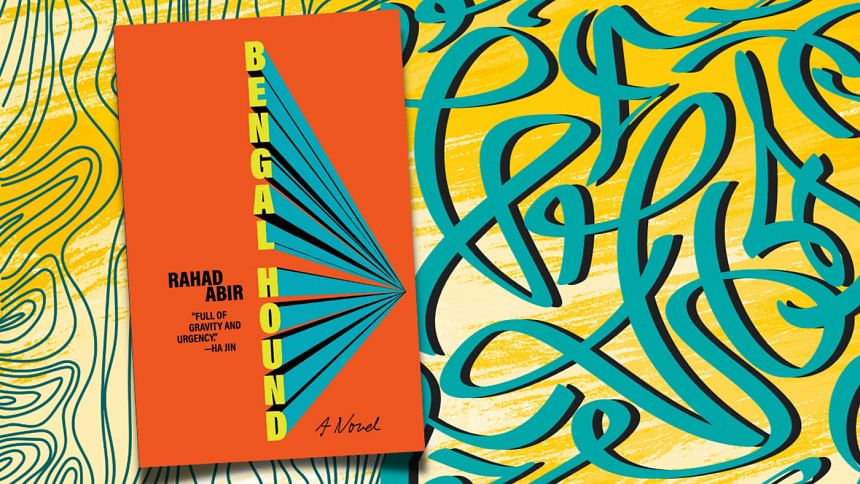Blood, rage and love on the verge of 1971

Reading Rahad Abir's Bengal Hound, despite the novel being written in English, felt a lot like reading in Bangla. While no two languages can ever truly be compared, there is much to be said about seeing Bangla and Bangladesh through an English language lens.
The author is well-versed in this, of course. His work has appeared in multiple international magazines and journals including The Los Angeles Times; he has received the Charles Pick Fellowship at the University of East Anglia; has an MFA in Fiction from Boston University; and is a recipient of the Marguerite McGlinn Prize for Fiction. His work has been translated into French and Hindi and he is working on a short story collection which is a finalist for the 2021 Miami Book Fair Emerging Writer Fellowship.
Bengal Hound begins in the late 1960's Dhaka, East Pakistan, with Shelley, a Dhaka University student who receives a letter from his childhood sweetheart, Roxana. Her father is forcing her to marry, and she and Shelley must elope. Trouble is, the political climate in the country is on the verge of boiling over, a terrible harbinger of the looming war for independence that we know will break out soon. Shelley, a Hindu man, elopes with the young and Muslim Roxana, and the path of grief, destruction and even blood that this single act leaves behind is a terrifying reflection of the breaking point of the country itself. Shelley's disintegrating state of mind is a perfect representation of the rapid deterioration of peace in Pakistan, both East and West, as the streets of Dhaka University are flooded with blood and rage is on the mind of every character we encounter. From Maya's struggle with heartbreak and detachment from reality, King Siraj's innocent but vicious fervour, to the struggles of refugees fleeing to India, there is not a single character in Bengal Hound who does not correspond, in some way or another, to the desperation and fire consuming the country. There is madness and bloodthirst in every heart, and every page of the book is soaked through.
While the plot takes time to truly begin, the narrative itself is not the allure of Bengal Hound. This is a Bangla story told through the English language, and it offers a unique experience. It allows more than only Bangla-readers to experience life in Dhaka just before the war. Take a tour of Dhaka University through Shelley's eyes. Visit Modhur Canteen and listen to his friends talk politics. Push open the creaking iron gate to Shelley's decrepit little rented room and laugh because he's proud he has no electricity or running water. Walk down Fuller Road and wonder at the majesty of "the Oxford of the East". Wonder at the casual cruelty of life in the brothel on English Road. And then wander far from the bleeding, bursting city streets to a tiny, beautiful flood-island in the middle of a singing river where love returns for a single, blissful night. Yet Dhaka, with all its brimming violence awaits, and we must accompany our protagonist back to reality. Revel in the glory of love, and then explore the depths of grief as an entire country falls apart at the seams around you.
Rahad Abir has done a tremendous job of showing us the multi-faceted experience of being a Dhaka University student in pre-Liberation Bangladesh by penning a story which uses English but keeps a firm hold of the flavour and feel of Bangla. There are times when this misses the mark, and there are times when it is a perfect bullseye, but there is no denying the importance of such a work. The tale ends with no true conclusion because no true story ever really ends, but books must. We close the book with both Shelley and the country on the very precipice of a bloodbath, and the last page, left chillingly blank, resounds with the music of war despite having no words at all.
A tragic but touching work of literature.
Sarazeen Saif Ahana is an adjunct member of the faculty of Independent University, Bangladesh where she teaches English and marvels at the beauty and complexity of language.

 For all latest news, follow The Daily Star's Google News channel.
For all latest news, follow The Daily Star's Google News channel. 







Comments